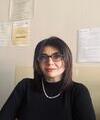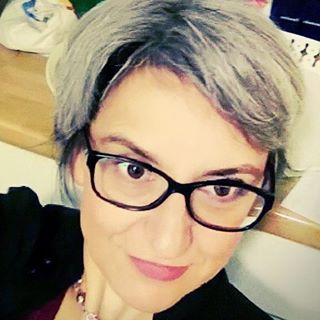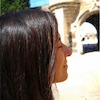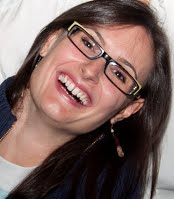Studying at the University of Verona
Here you can find information on the organisational aspects of the Programme, lecture timetables, learning activities and useful contact details for your time at the University, from enrolment to graduation.
Academic calendar
The academic calendar shows the deadlines and scheduled events that are relevant to students, teaching and technical-administrative staff of the University. Public holidays and University closures are also indicated. The academic year normally begins on 1 October each year and ends on 30 September of the following year.
Course calendar
The Academic Calendar sets out the degree programme lecture and exam timetables, as well as the relevant university closure dates..
| Period | From | To |
|---|---|---|
| CuCi IA | Sep 21, 2020 | Oct 31, 2020 |
| CuCi IB | Nov 9, 2020 | Jan 9, 2021 |
| CuCi IIA | Feb 15, 2021 | Apr 1, 2021 |
| CuCi IIB | Apr 14, 2021 | May 29, 2021 |
| Session | From | To |
|---|---|---|
| sessione d'esame invernale CuCi | Jan 11, 2021 | Feb 13, 2021 |
| sessione d'esame estiva CuCi | Jun 7, 2021 | Jul 24, 2021 |
| sessione d'esame autunnale CuCi | Aug 23, 2021 | Sep 18, 2021 |
| Session | From | To |
|---|---|---|
| sessione di laurea invernale 19-20 | Apr 7, 2021 | Apr 13, 2021 |
| sessione di laurea estiva 20-21 | Jul 5, 2021 | Jul 10, 2021 |
| Sessione autunnale di laurea a.a. 2020/21 | Nov 8, 2021 | Nov 13, 2021 |
| Sessione straordinaria di laurea a.a. 2020/21 | Mar 28, 2022 | Apr 2, 2022 |
| Period | From | To |
|---|---|---|
| Festa di Ognissanti | Nov 1, 2020 | Nov 1, 2020 |
| Chiusura Ateneo ponte Immacolata | Dec 7, 2020 | Dec 7, 2020 |
| Festa dell'Immacolata | Dec 8, 2020 | Dec 8, 2020 |
| Vacanze di Natale | Dec 24, 2020 | Jan 6, 2021 |
| Vacanze di Pasqua | Apr 2, 2021 | Apr 6, 2021 |
| Festa della liberazione | Apr 25, 2021 | Apr 25, 2021 |
| Festa del lavoro | May 1, 2021 | May 1, 2021 |
| Santo Patrono | May 21, 2021 | May 21, 2021 |
| Sospensione delle lezioni | May 22, 2021 | May 22, 2021 |
| Festa della Repubblica | Jun 2, 2021 | Jun 2, 2021 |
| Vacanze estive | Aug 9, 2021 | Aug 15, 2021 |
Exam calendar
Exam dates and rounds are managed by the relevant Culture and Civilisation Teaching and Student Services Unit.
To view all the exam sessions available, please use the Exam dashboard on ESSE3.
If you forgot your login details or have problems logging in, please contact the relevant IT HelpDesk, or check the login details recovery web page.
Should you have any doubts or questions, please check the Enrollment FAQs
Academic staff
 veronica.gobbato@univr.it
veronica.gobbato@univr.it
 silvia.zollo@univr.it
silvia.zollo@univr.it
Study Plan
The Study Plan includes all modules, teaching and learning activities that each student will need to undertake during their time at the University.
Please select your Study Plan based on your enrollment year.
1° Year
| Modules | Credits | TAF | SSD |
|---|
One module to be chosen among the followingOne module to be chosen between the followingOne module to be chosen among the followingOne module to be chosen among the following2° Year activated in the A.Y. 2021/2022
| Modules | Credits | TAF | SSD |
|---|
One module to be chosen among the followingOne module to be chosen between the following| Modules | Credits | TAF | SSD |
|---|
One module to be chosen among the followingOne module to be chosen between the followingOne module to be chosen among the followingOne module to be chosen among the following| Modules | Credits | TAF | SSD |
|---|
One module to be chosen among the followingOne module to be chosen between the following| Modules | Credits | TAF | SSD |
|---|
Legend | Type of training activity (TTA)
TAF (Type of Educational Activity) All courses and activities are classified into different types of educational activities, indicated by a letter.
Levels of linguistic analysis (2020/2021)
Teaching code
4S007302
Academic staff
Coordinator
Credits
6
Language
English
Scientific Disciplinary Sector (SSD)
L-LIN/01 - HISTORICAL AND GENERAL LINGUISTICS
Period
CuCi IA dal Sep 21, 2020 al Oct 31, 2020.
Learning outcomes
- Learn methods and theories of Linguistics according to the different levels of analysis (phonology, morphology, syntax, information structure). - Recognize and describe in an appropriate and uniform way the main structural phenomena occurring in languages at different levels of analysis. - Acquire experience to develop a critical attitude towards methods and theoretical frameworks for the study of language. - Present the results of the work with the appropriate terminology and according to recognized standards. - Increase the ability to learn theories and technical terminology in further studies.
Program
Basic concepts and methods for linguistic description in the different levels of analysis
1) Basic method in the description of linguistic phenomena: introduction to the Leipzig Glossing Rules
2) The levels of analysis
- Articulatory phonetics
- Acoustic phonetics
- Axes of language variation
- Sound change
- Morphology: basics
- Basic concepts in syntax
An introduction to the study of the main phenomena of change in diachrony, sociolinguistic variation, linguistic contact and interference phenomena:
- phonetic and phonological change
- variance and social factors
- interference
*Please refer also to the documents available in the moodle course*
NB: considering the current situation of epidemic risk, the teaching will be carried out with lessons in the classroom (if safety conditions permit), in any case integrated with the moodle platform, and streaming and video-conferencing technologies.
| Author | Title | Publishing house | Year | ISBN | Notes |
|---|---|---|---|---|---|
| Yule, G. | The Study of Language. (Edizione 7) | Cambridge University Press. | 2020 | 9781108582889 | doi:10.1017/9781108582889. Required chapters: 1–8; 17–20. |
Examination Methods
Students' preparation will be tested, exploiting the potential of the Moodle platform, by integrating 'in itinere' written tests (during the teaching session) and a final interview on the entire teaching programme (on the dates of the exams).
Teachers will assess the level of knowledge of the fundamental methods and theories of linguistic analysis and the ability to apply it, i.e. to recognize and describe the structural phenomena of languages in an appropriate and uniform manner, consistent with the topics covered during the course.
Critical thinking, property of language (correct use of technical terms, readiness and pertinence of responses) will also be taken into account for the assessment.
Knowledge will be tested with questions on specific topics and concepts. Competence in applying knowledge (i.e. recognising and describing structural language phenomena in an appropriate and uniform way) will be tested with short exercises containing glossed examples from different languages.
Handbook.
A basic handbook, in English, is required for the recovery or reappraisal of basic knowledge.
The chapters to study are:
1-8;
17-20.
Specific bibliography. -MANDATORY- please refer to the moodle page.
Further, more specific required papers will be indicated during class.
-Recommendations-
Under normal conditions, we recommend the formation of study groups in which students of diverse academic experience can compare their knowledge and frameworks.
The exam will be in English.
'In itinere' tests and/or papers will be mainly evaluated with a "sufficiently competent / not yet competent" binary parameter.Negative tests and papers may be repeated adn improved. The final interview will result in an evaluation in thirtieth.
Type D and Type F activities
| years | Modules | TAF | Teacher |
|---|---|---|---|
| 1° 2° | Il testo en abyme. Rappresentazioni della scrittura nell’Europa romantica | F | Not yet assigned |
| years | Modules | TAF | Teacher |
|---|---|---|---|
| 1° 2° | PhD Conference 2021: Margins and Forgotten places | D |
Simona Brunetti
(Coordinator)
|
Career prospects
Module/Programme news
News for students
There you will find information, resources and services useful during your time at the University (Student’s exam record, your study plan on ESSE3, Distance Learning courses, university email account, office forms, administrative procedures, etc.). You can log into MyUnivr with your GIA login details: only in this way will you be able to receive notification of all the notices from your teachers and your secretariat via email and soon also via the Univr app.
Gestione carriere
Tutoring
The Master's Program in Linguistics offers a tutoring service to all the students, who can take advantage of careful support in the orientation and organization of their study plan, preparation for exams and drafting of the final thesis, and in all other situations in which guidance may be useful.
Students can apply to one of the following Academic Tutors:
Paola Cotticelli (paola.cotticelli@univr.it), Serena Dal Maso (serena.dalmaso@univr.it) and Chiara Melloni (chiara.melloni@univr.it).
The following Junior Tutors are also available to international and Italian students in the academic year 2023/24:
for University guidance: 2 second-year students of the Master’s course in Linguistics, aiming to provide students with orientation and practical support, for instance, in the definition of the study plan, use of esse3 and Moodle, etc.:
Davide De Martino & Sarina Motta
for study support: 2 PhD Students in Linguistics, aiming to assist students in the preparation of the exams and thesis writing:
Emanuele Bernardi & Sara Cavaglià
The Junior Tutors will plan individual meetings and tutorials for small groups of students on days and times to be set.
⇒ A meeting for welcome and orientation - "Welcome Day" - will be held online via Zoom and in classroom 1.2 POLO ZANOTTO on the 25th of September at 11:50 AM, local time.
Below is the link to the Zoom meeting:
https://univr.zoom.us/j/92361062819?pwd=T3JYaUoyaEU5OTY1TXRhQkR2aVZkQT09
ID riunione: 923 6106 2819
Passcode: 896312
On this occasion, the main features of the Master’s degree Program in Linguistics will be presented and questions about various topics related to the Program will be answered.
Linguistic training CLA
FAQ
Frequently Asked Questions
…ABOUT THE PROGRAM
1. What makes this program worth attending?
The master’s degree program in Linguistics at the University of Verona offers a unique educational opportunity on the national scene for various reasons, shortly listed below:
- a fully international program in Linguistics, one of the two international programs in Linguistics offered in Italy;
- a rich array of modules, some compulsory and others to be chosen by the students, who can thus customize their academic experience according to their interests;
- guest teachers from the most important European and extra-European academic institutions;
- lessons taught in English for all the compulsory modules and in other languages for the modules to be chosen by the students, so to guarantee an authentic multilingual experience;
- a stimulating multicultural environment, with students coming from several world countries;
- a teaching board composed of high-profile researchers, teaching their topics of investigation;
- a careful tutorship aimed at assisting the students with administrative issues and preparation to the exam and/or final thesis.
2. Do I need to know other languages besides English and my mother tongue?
No. Although an intermediate-level competence in another language (among French, German, Spanish or Russian) is welcome due to the presence of language-specific modules to be chosen by the students, there is no strict requirement of a level certificate in other languages besides English, since an English option is always available among those modules the students have to choose and add to their study plan.
The study of Italian as a second language is strongly encouraged among the international students, who can get credits for language skill certificates in L2 Italian (starting for the B1 level).
3. Do I need any previous knowledge of Linguistics?
Yes. Admission to the master’s degree program is possible for those students who took some preliminary modules in Linguistics during their Bachelor’s degree program. The curricula of the international students are evaluated by a Committee which checks for basic competence in linguistics on the basis of the students’ transcripts of records. For the Italian students, in particular, the requirement is to have gained at least 6 CFU in Linguistics in their Bachelor’s (with exams pertaining to SSD L-LIN/01).
4. Do I need a minimum Bachelor’s degree grade to be accepted for this master’s degree program?
Yes and no.
For international (extra-EU) students: grades (CGPA) and academic curriculum are important for obtaining one of the 3 scholarships reserved to the extra-EU candidates. The call usually specifies a minimum average grade (7/10 on a normalized scale); preadmission is subject to evaluation of the candidate's titles (CV, transcripts of records, language certificates, etc.). For furthe info, look here.
For Italian students with Bachelor’s degree grade below 100/110, a preliminary interview is compulsory. For further info, look here.
5. Is there a test that I need to pass, in order to be accepted for this master’s degree program? What about an English language test?
For International Students: No interview/test is required, because you are evaluated in a preliminary phase for preadmission to the degree program on the grounds of your CV, transcript of records, language skill certificates, reference letters, etc.
For the Italian students or International students with Permesso di soggiorno: an interview is compulsory if you did NOT graduate in the following degree programs:
Corsi di laurea in Lettere quadriennale dell'ordinamento ante D.M. 509/99 e di Laurea di primo livello L-05 ex D.M. 509/99 o L-10 D.M. 270/04; Lingue e Letterature straniere quadriennale dell'ordinamento ante D.M. 509/99, e di Laurea di primo livello L-11 ex D.M. 509/99 o L-11 D.M. 270/0); Laurea di primo livello L-14 ex D.M. 509/99 o L-20 D.M. 270/04.
Further, students holding a degree in the above-mentioned bachelor’s programs are also required to pass a preliminary interview if they got a final grade below 100/110.
An English language test is required if you do not hold a B2 level certificate in English.
6. I don’t know anything about the Italian university system. Who will help me? Is there an international desk for this reason?
The Welcome Office is at your disposal for queries about the university system:
http://www.univr.it/en/our-services/public/welcome-office
For queries about the program, you may refer to the Chairperson of the degree program (Chiara Melloni) or to the members of the Didactic Committee: Paola Cotticelli, Serena Dal Maso.
…ABOUT COURSES AND CLASSES
7. How can I sign up for courses?
There is no need to sign up for courses. As you access the degree program you will be directly signed up for the mandatory courses of the study plan. As for the courses to be chosen, it is important to select them and complete the “piano di studi” (study plan) in order to take part in the exams. To do this, you should use the ESSE3 portal (https://univr.esse3.cineca.it/Home.do?cod_lingua=eng).
Regarding the modules offered by other degree programs, you could introduce yourself to the teacher and ask for Linguistics’ student specific instructions, if any, concerning attendance, program and exam.
8. Is it mandatory to be present in class?
In general, attendance is not compulsory. However, for some modules (laboratories or courses comprising exercises in class) attendance is either compulsory or strongly advised.
9. How can I find the study materials for the courses I have taken?
Study materials are indicated at the webpages of each module.
For most modules, materials are:
- either available at one or more of the University libraries;
- or made available by the teacher through the e-learning platform (Moodle) of the course (there is a direct link to it on the webpage of the modules).
In absence of clear indications or issues with the study materials, you should contact the teacher of the course, especially if you are a non-attending student.
10. What courses can I take to get the credits needed for “further language skills”?
For further language skills, you should attend lessons and get (foreign) language skill certificates in Italian as L2, English (C1 or C2), German, Spanish, French and English at the Center for Foreign Languages (Centro Linguistico di Ateneo, CLA): please visit CLA website here.
Credits can be obtained starting from the B1 level in various language skills, comprising Italian as a second language for the International Students (for instance, 3 ECTS/CFU for a B1, and further 3 ECTS/CFU for the B2). For English, credits will be given for C1 and C2 only, being B2 the minimum level for admission.
11. What about the credits dedicated to “activities to be chosen by the students”?
There are 12 credits of type D in the program to be gained upon your choice among various modules/activities: these may be obtained passing master’s level exams in disciplines related to the main scientific areas of the course (linguistics, philology, psychology, pedagogy, etc.), to be chosen among those available in the “piano di studi” (study plan) section in ESSE3.
For instance, you may choose two 6-credit-modules, obtaining 12 ECTS/CFU. Otherwise, up to 6 of these type D credits may be obtained thorough:
• acquisition of competence in further language skills (language skills certifications higher than B1), within a limit of 6 ECTS/CFU;
• certification of a training activity carried out both inside and outside the Department, within a limit of 6 ECTS/CFU (i.e. TOEFL Exam, Teacher trainings, or other courses). These training activities must be pre-approved by the Collegio Didattico.
12. How is the Thesis process organized? When can I start working on my thesis? How can I choose a topic to work on? Which professors can I work with?
The final exam for the achievement of the title consists in the discussion of a written thesis/dissertation, to which 24 ECTS/CFU are awarded, which focuses on topics related to the course of studies.
The topic should be proposed either by yourself or by your supervisor and should be agreed by both taking into consideration: your previous knowledge on the topic, your interest/enthusiasm for it, the overall feasibility of the project, the time requested and, in case of experimental projects, the availability of current experimental activity in the research area of your interest.
You may request the assignment of a topic for the thesis after having acquired at least 50 ECTS/CFU credits. The thesis should consist indicatively in about 80-120 folders and must be written in English or Italian (Italian is encouraged for the international students); it may be written in one of the languages of the language-specific linguistics modules (for instance, French or German), subject to approval by the supervisor and the Collegio Didattico. The defense can be conducted in English or Italian.
Any professor of the University of Verona may act as supervisor for the attainment of the master's degree in Linguistics, provided that you passed at least one exam in a discipline of his/her scientific sector and/or provided that this professor is a member of the Collegio Didattico of the degree program in Linguistics or of a Collegio Didattico for which s/he holds a course (‘corso in mutuazione’).
… ABOUT EXAMS
13. When and how should I apply for the exams?Is there a deadline for the exam registration?
You should apply after completion of the course, starting from the first session available.
Registration for the exams can be done by using ESSE3 platform:
https://univr.esse3.cineca.it/Home.do?cod_lingua=eng
The deadline for registration is indicated for each exam. Generally, you can sign up for the exam or cancel your registration by four working days before the date of the exam.
14. Are books and exams all in English?
Bibliographic references and exams are in English for the compulsory courses and for other courses among those you have to choose that are taught in English. In this degree program, there are also modules in Italian, German, French, Spanish, Russian: for these modules, materials and exams are in the respective languages.
15. In cases where “alternatives” are offered will there always be an exam in English?
Yes, the program has been devised so as to guarantee an English option among the alternatives.
16. What is an “appello”?
An “appello” is the exam itself. It can be oral, written or both. During the session of exams (which are 3 per academic year), there are two ‘appelli’ for each module, i.e. two opportunities to take the exam, set at a time distance of at least 15 days from each other. Therefore, students have 6 overall chances per year to pass the exam of a module.
17. What if I fail an exam? How many choices do I have to re-take it?
You can re-take the exam in one future opportunity, during the same session or in the next one. There is no limit to the chances of passing an exam.
Students who fail the exam are encouraged to contact the teacher of the module and the didactic tutors for guidance and tutorship (for further info, look here )
18. How can I find out the results of my exams?
For oral examinations, the grade is communicated to the student at the end of the exam.
For written texts, the results:
- may be published as “Avvisi” (Announcements) of the module and/or on the e-learning (Moodle) platform (visit the website of the module and the Moodle platform, if activated). The results are anonymous: only enrollment number and associated grade are published.
- may be communicated privately to the student by the teacher, either by e-mail or during the office hours.
If you are not satisfied with your grade and you’d rather re-take the exam, you have to inform the professor about it suddenly after the results are published, and then you may sign up for and sit the exam again in the next “appelli”.
… ABOUT SCHOLARSHIP/ERASMUS
19. Who could I talk to if I had questions about my scholarship?
You may write to the International Office at
admissions@ateneo.univr.it
20. What is a DUB? What do I need it for?
To receive a scholarship, you will need to complete the DUB (the Benefits Application Form) online on the Esse3 platform. Beware the deadlines! This is a good opportunity to receive valuable financial help, so make sure to complete your DUB on time.
VERY IMPORTANT: remember to complete your ISEE declaration BEFORE completing the DUB.
Visit this link for more information: www.univr./benefici.it
21. Can I apply for Erasmus+ in this master’s degree program? Which places I can choose from?
Yes, of course! Students are strongly encouraged to have an educational experience abroad through Erasmus+, Worldwide, Short Term Mobility or through any of the international mobility programs promoted by our University.
All information about Erasmus+ and further programs are available at this link:
http://www.univr.it/en/our-services/public/international-relations/study-abroad/study-abroad-erasmus-and-other-opportunities
As for Erasmus+, the partner institutions that you may choose are the ones holding student exchange agreements at the master’s level with our University.
QUESTIONS ABOUT FUTURE CAREER
22. What can I do next as a person who graduated in Linguistics?
As a graduate in Linguistics, you will hold a high level of knowledge of the theories, methodologies and techniques of language investigation and you will be able to apply them in various areas of work for research, teaching and counselling in the analysis of written and/or spoken materials.
Career opportunities for graduates in linguistics, also projected in an international dimension, concern linguistic counselling in several areas, from the drafting and editing of texts to international cooperation activities to the policies of linguistic integration for immigrants, to the management of multilingualism and finally to the design and evaluation of IT tools for the treatment of linguistic corpora and of verbal communication.
As a graduate in Linguistics, you may of course decide to continue your education by applying for a PhD program in Linguistics or related areas in Italy or abroad (your profile is going to be perfect for the international scene) or with a (professional) short-Master.
23. After finishing my master’s degree program successfully, in what organizations do I have the chance to work?
As a researcher or collaborator with expertise in language science and philology, or as a language-expert collaborator in research institutes and universities:
Public or private research centers, Universities, and cultural institutes (in Italy or abroad).
As a linguistic consultant and text drafter/compiler:
Publishing houses, public or private educational institutions operating in a multilingual context, libraries and archives, advertising agencies, and insurance agencies.
As a linguistic consultant and text editor:
Italian or foreign institutional foundations, universities and research centres, publishing houses, communication and advertising companies.
As a linguist and philologist:
Italian and foreign academic and research institutes, cultural centres and foundations, cultural institutes in Italy and abroad, and libraries.
Graduation
24 CFU - for teaching
Indicazioni sugli insegnamenti della laurea magistrale in Linguistics riconoscibili per i 24 CFU obbligatori per l’accesso al concorso docenti- AMBITO A: pedagogia, pedagogia speciale e didattica dell’inclusione;
- AMBITO B: psicologia;
- AMBITO C: antropologia;
- AMBITO D: metodologie e tecnologie didattiche generali.
Questi CFU possono essere acquisiti attraverso il Percorso Formativo 24 CFU (per il PF 24 CFU si rimanda a https://www.univr.it/it/i-nostri-servizi/post-laurea/formazione-degli-insegnanti), ma anche in forma curricolare.
In particolare, il piano di studi del Corso di Laurea Magistrale in Linguistics comprende alcuni insegnamenti automaticamente riconoscibili ai fini dei 24 CFU, di seguito elencati:
- Per l’ambito B: 6 CFU Psychology and Cognitive Sciences (M-PSI/01)
- Per l’ambito D (specifico per ogni classe di concorso): 12 CFU Language Learning (L-LIN/02), 6 CFU Historical Linguistics (L-LIN/01), 6 CFU Semantics and Pragmatics (L-LIN/01), 9 CFU Lingüística española lm (L-LIN/07), 9 CFU Linguistique Française lm (L-LIN/04), 6 CFU Semiotica (L-LIN/01).
Oltre ai 24 CFU in discipline antropo-psico-pedagogiche e metodologie e tecnologie didattiche, è richiesto il possesso di specifici CFU per ogni classe di concorso, consultabili nella tabella A del D.M. 259/17.
Il piano di studi del Corso di Laurea Magistrale in Linguistics comprende vari esami spendibili per l’accesso a diverse classi di concorso, come riportato di seguito.
- Esami spendibili per cdc A-11 (Discipline letterarie e latino), A-12 (Discipline letterarie negli istituti di istruzione secondaria di II grado), A-13 (Discipline letterarie, latino e greco), A-22 (Italiano, storia, geografia nella scuola secondaria di I grado): Semantics and Pragmatics (L-LIN/01), Morpho-Syntax (L-LIN/01), Levels of Linguistic Analysis (L-LIN/01), Historical Linguistics (L-LIN/01), Linguistica Italiana (L-FIL-LET/12).
- Esami spendibili per cdc A-23 (Lingua italiana per discenti di lingua straniera): Semantics and Pragmatics (L-LIN/01), Morpho-Syntax (L-LIN/01), Levels of Linguistic Analysis (L-LIN/01), Historical Linguistics (L-LIN/01), Language Learning (L-LIN/02), Linguistica Italiana (L-FIL-LET/12).
- Esami spendibili per cdc A-24 (Lingue e culture straniere negli istituti di istruzione secondaria di II grado) e A-25 (Lingua inglese e seconda lingua comunitaria nella scuola secondaria di primo grado): Semantics and Pragmatics (L-LIN/01), Morpho-Syntax (L-LIN/01), Levels of Linguistic Analysis (L-LIN/01), Historical Linguistics (L-LIN/01), Language Learning (L-LIN/02), Linguistique Française lm (L-LIN/04), English Linguistics lm (L-LIN/12); Russian Linguistics lm (L-LIN/21), Lingüística española lm (L-LIN/07), Sprachwissenschaft des Deutschen lm (L-LIN/14).
Student login and resources
Doppio Titolo
⇒ Per informazioni vedi LINK
Documents
| Title | Info File |
|---|---|
|
|
pdf, it, 6524 KB, 22/12/22 |
|
|
pdf, it, 949 KB, 07/02/23 |

 +39 045802 8465
+39 045802 8465























